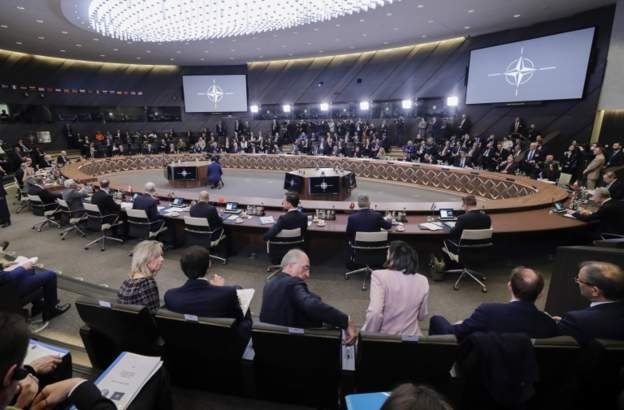Since Ukraine achieved independence in 1991, as the Soviet Union collapsed, it has gradually veered towards the West - both the EU and Nato.
Russia's leader Vladimir Putin aims to reverse that, seeing the fall of the Soviet Union as the "disintegration of historical Russia". He has claimed Russians and Ukrainians are one people and denied Ukraine its long history: "Ukraine never had stable traditions of genuine statehood," he asserted.
It was his pressure on Ukraine's pro-Russian leader, Viktor Yanukovych, not to sign a deal with the European Union in 2013 that led to protests that ultimately ousted the Ukrainian president in February 2014.
Russia then seized Ukraine's southern region of Crimea and triggered a separatist rebellion in the east and a war that claimed 14,000 lives.
As he prepared to invade in February, he tore up an unfulfilled 2015 Minsk peace deal and accused Nato of threatening "our historic future as a nation", claiming without foundation that Nato countries wanted to bring war to Crimea.
But what would Russia accept from a neutral Ukraine? Russia is considering a "neutral, demilitarised" Ukraine with its own army and navy, along the lines of Austria or Sweden, which are both EU members.
"Austria was neutral, is neutral and will remain neutral in the future too," says Chancellor Karl Nehammer, even if it is part of Nato's Partnership for Peace.
But Sweden is not neutral: it is non-aligned. It has taken part in Nato exercises and Swedes have actively discussed joining in the future.
